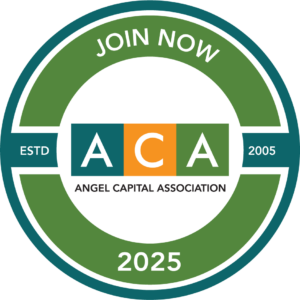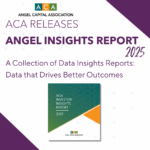Angel Insights Blog

Monday, February 15, 2016
Demo Days May Get Clarity for Investors and Entrepreneurs, Thanks to Congressmen
By: Marianne Hudson, ACA Executive Director
Many angels, startups, VCs and the startup ecosystem have asked for more clarity about demo days for a couple years now. These events seem to meet the definition of “general solicitation” and most investors don’t want to invest in companies that publicly advertise, but they have seen demo days as an important part of our world for decades. The confusion may get clarity because of the work of a bi-partisan group of Members of Congress.
The Angel Capital Association supports HR 4498, the Helping Angels Lead Our Startups Act (HALOS Act) and want to thank Reps. Chabot, Sinema, Hurt and Takai for introducing this bi-partisan bill last week. We believe the HALOS Act helps more job-creating startup companies raise the funding they need because it removes a barrier to funding. There has already been discussed in a hearing of the House Financial Services and could be on a positive track. A similar bill is also in the Senate, with bi-partisan sponsors as well.)
If you don’t know about the demo day issue, here is the background you need and the case for the HALOS Act.
The barrier comes from an unintended consequence of SEC rulemaking for the Jumpstart Our Business Startups (JOBS) Act. Regulation D 506(c) permits private issuers to use general solicitation when raising capital as long as they take reasonable steps to verify that the investors who purchase their securities are accredited investors. Currently most attorneys advise startups to use the “safe harbors” included in the SEC rule, which generally requires an investor to provide financial and/or wealth documentation to a third party or to the issuing entrepreneur. Handing over personal wealth and financial documentation to a third party poses privacy concerns and asking entrepreneurs, which many not have the physical or financial means to vet investors puts these entrepreneurs at risk of violating compliance with Regulation D.
This rule is particularly difficult for “Demo Days,” events in which entrepreneurs highlight their companies to investors and others, usually after a month or more of education and mentoring to improve their business strategies. These events come in a variety of forms: university business plan competitions, statewide venture forums, and incubator or accelerator demo days, among others. Demo days have multiple purposes: connecting early-stage entrepreneurs with experts who may mentor and invest in them in the future, highlighting the economic development capabilities of communities and regions, and educating a variety of attendees on important facets of starting and growing businesses.
Demo Days have been an important part of the entrepreneurial financing process for literally decades, often with lead sponsorship by federal, state and local government entities for the purpose of economic development. Thousands of these events have been held annually. We’re not aware of investor fraud issues connected to these events. Requiring verification of accredited investors for these events creates a new burden for participating entrepreneurs and makes investors less likely to invest in participating companies because they are concerned about the requirements of the SEC rule.
The HALOS Act would exempt Demo Days from general solicitation requirements. It is true that these events are mostly open to the general public, but is important to point out that the actual investors in participating startup companies would continue to be restricted to those who meet the legal definition of accredited investor.
Further it is important to understand the reasons that Demo Days should include unaccredited investors as attendees. Their education and economic development purposes might be even more important than connecting entrepreneurs to potential investors. For instance, entrepreneurs who are not presenting their companies attend to learn from the presentations of other entrepreneurs and the kinds of questions and feedback they receive from investors and business experts. College classes and programs build in attendance to demo days for the students to similarly learn from entrepreneurs and investors – this is a practical way to learn the finer points of building real businesses to success. Small business agencies can better understand the kinds of companies that most interest angel investors and VCs so that they may improve the support services they have for new high growth entrepreneurs.
The Angel Capital Association and our 13,000 member accredited angel investors across the U.S. strongly support the HALOS Act. Demo days are important to the support of high growth entrepreneurs and are also important to education of the entrepreneurial ecosystem and to economic development activities in many communities. Attendees at these events have an understanding of their role at the events and it is well known that only accredited investors may invest in the startups. Given that investor fraud has not been a part of Demo Days – with thousands of events annually over multiple decades – we believe Demo Days merit an exemption from general solicitation rules.
Tags: General Solicitation SEC Rules Accredited Investors Early-Stage Landscape






